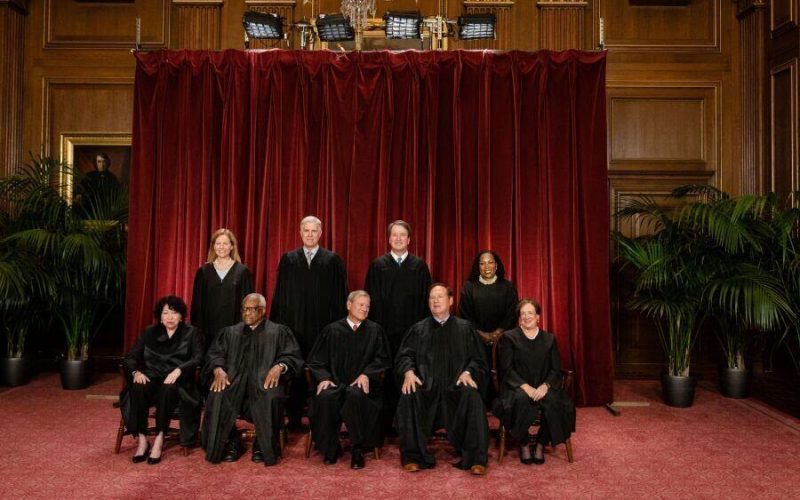The Supreme Court of the United States appears to be leaning towards granting Russell Alford’s request for a writ of certiorari.
Alford, one of the few defendants from the January 6th incident who has declined a plea deal, may have his case heard by the highest court in the land. Such a decision is rare, as only about 1% of cases make it to SCOTUS.
Alford is among the 75 defendants from the January 6 incident who made an official request to Republican Speaker McCarthy last year for the government’s footage of the January 6 events.
Despite spending only 13 minutes inside the Capitol on January 6, where “he mostly stood to the side and observed” and “filmed protestors chanting,” before leaving, as outlined by the Court of Appeals for the District of Columbia Circuit, Alford received the maximum sentence for four offenses.
These included Remaining in a restricted building, Disorderly or disruptive conduct in a restricted building, Disorderly or disruptive conduct in the Capitol Building, and parading, and Demonstrating or picketing in a Capitol Building.
The Court’s decision also established that “trespassers in the Capitol during the riot did not need to be acting ‘disorderly’ or ‘disruptive’ to be found guilty of disorderly conduct, because such definitions ‘are nebulous but time has given them concrete contours in two ways important here,’” according to Frontline News.
Alford is challenging the decisions made by the trial court and Appeals Court that “passive, quiet, and nonviolent conduct can be disorderly.”
While the Supreme Court might not have jurisdiction over Alford’s charges for “remaining” and “demonstrating” in the Capitol, this could impact the convictions of numerous peaceful protesters who were charged with disorderly conduct.
According to Frontline News, “1,156 peaceful January 6 protesters have been charged with engaging in disorderly or disruptive conduct. 1,021 have been charged with disorderly or disruptive conduct in a Capitol building. About 1,000 of them have been hit with both misdemeanor charges. These are the most common charges that the 1,300+ total January 6 peaceful protesters have been hit with.”
The Department of Justice allegedly chose not to file a response to Alford’s petition, possibly indicating their recognition that the charges lack merit and they are likely to lose the case.
More from Frontline News:
The Supreme Court has requested a response from the Department of Justice (DOJ) to a petition from a peaceful J6 protestor who is appealing his conviction for disorderly conduct.
The High Court only agrees to grant certiorari, i.e., review a request for appeal, in about eighty out of seven to eight thousand petitions for “a writ of certiorari” each year.
Normally, the justices do not give an indication of whether they are inclined to include a particular case in the one percent that get to the next stage, which includes additional briefs and oral arguments, until after receiving a response to the petition and the petitioner’s reply to the response.
The Supreme Court may be leaning towards granting certiorari for Russell Alford’s case, as indicated by their request for a response from the Department of Justice by May 23, 2024, despite the DOJ initially waiving its right to respond.
Alford, among the few January 6 defendants who rejected plea deals, was convicted on four counts for a 13-minute trespass in the Capitol, where he filmed protestors and left shortly after police arrived.
The DOJ’s charging approach has faced criticism, with some arguing it’s tantamount to overcharging defendants. However, Alford’s case, while facing multiple charges, doesn’t fit the traditional definition of overcharging, as each charge was prosecuted.
Alford appealed convictions for charges requiring proof of “disorderly or disruptive conduct,” arguing his passive presence didn’t constitute disorderly behavior. However, both the trial and appellate courts upheld the convictions, affirming that even passive conduct can be considered disorderly in certain contexts.
Share your thoughts by scrolling down to leave a comment.

